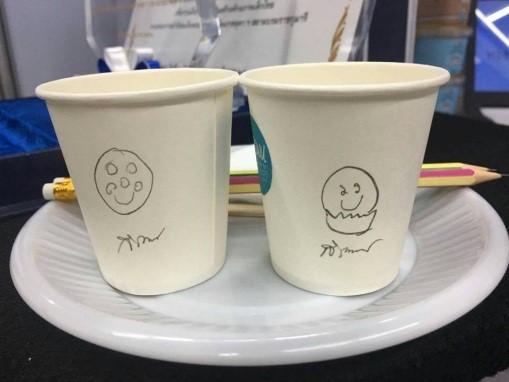จากกิจกรรมในโครงการพระราชดำริสู่การพัฒนาวิทยาศาสตร์ตามแนวทางสะเต็มศึกษาในโครงการมหาวิทยาลัยเด็ก มหาวิทยาลัยศรีนครินทรวิโรฒ
Main Article Content
Abstract
Surasak Laloknam, Bongkoj Boonburapong, Decha Channamsai, Narathip Pramote, Panukorn Konsaiya, Phatthamaphorn Nadoo, Wasana Paingam and Sirinya Pairoh
รับบทความ: 15 สิงหาคม 2560; ยอมรับตีพิมพ์: 30 พฤศจิกายน 2560
บทคัดย่อ
โครงการมหาวิทยาลัยเด็กมหาวิทยาลัยศรีนครินทรวิโรฒได้พัฒนาบทปฏิบัติการสะเต็มศึกษาตามแนวทางโครงการพระราชดำริ สำหรับนักเรียนระดับมัธยมศึกษาตอนต้น ได้แก่ (1) ฝนหลวง (2) ฝายชะลอน้ำเพื่อชีวิต (3) น้ำดีไล่น้ำเสีย (4) แกล้งดิน (5) เขื่อนเปลี่ยนรูปพลังงาน (6) กังหันน้ำชัยพัฒนา และ (7) เกษตรทฤษฎีใหม่ ให้นักเรียนที่เข้าร่วมโครงการเชื่อมโยงความรู้ทางวิทยาศาสตร์กับโครงการพระราชดำริพัฒนาทักษะกระบวนการทางวิทยาศาสตร์ และทัศนคติที่ดีในการเรียนรู้วิทยาศาสตร์
คำสำคัญ: โครงการมหาวิทยาลัยเด็ก โครงการพระราชดำริ กิจกรรมวิทยาศาสตร์ สะเต็มศึกษา
Abstract
Children’s University project at Srinakharinwirot University has been developed by using the STEM education experiment laboratories based on the Royal-Initiated Projects for lower secondary students. The seven science activities were (1) Royal rain project, (2) Check dam for life, (3) Waste water dilution, (4) Trick the soil, (5) Dam for energy transformation, (6) the Chaiphatthana aerator, and (7) New theory on managing agricultural land. The students engaged with science activities could integrate scientific knowledge and science process skills related the Royal-initiated projects through STEM education. The students showed good attitudes in science.
Keywords: Children’s university, The royal-initiated projects, Science activities, STEM education
Downloads
Article Details

This work is licensed under a Creative Commons Attribution-NonCommercial 4.0 International License.
References
Laloknam S. (2014). Thailand Children’s University at Srinakharinwirot University to Inspire Science for Local Youth. Journal of Research Unit on Science, Technology and Environment for Learning. 5(1): 101–108. (in Thai)
NSTDA. (2012). Thailand Children’s University. Retrieved from http://www.nstda.or. th/news/9130-thailand-children-university, April 25, 2016.
NSTDA. (2017). Hands Book of Thailand Children’s University: Enjoy Science for Youth. Samutprakan: Advance Printing Service. (in Thai)
Siripatachai, P. (2013). STEM Education and 21st Century Skills Development. Executive Journal. 33(2): 49–56.
Bellanca J., and Brandt, R. (2010). 21st Century Skills Rethinking How Students Learn. Bloomington, Solution Tree.
Breiner J. M., Carla C. J., Harkness S.S., and Koehler C. M. (2012). What is STEM? A discussion about conceptions of STEM in education and Shelly Sheats Harkness Partnerships. School Science and Mathematics 112(1): 3–11.
Phornphisutthimas, S. (2013). Learning management of Science in 21st Century. Journal of Research Unit on Science, Technology and Environment for Learning. 4(1): 55–63.
Wagner, T. (2008). The Global Achievement Gap: When Even Our Best Schools Don’t Teach the New Survival Skills Our Children Need and What We Can Do about It. New York: Basic Books.
